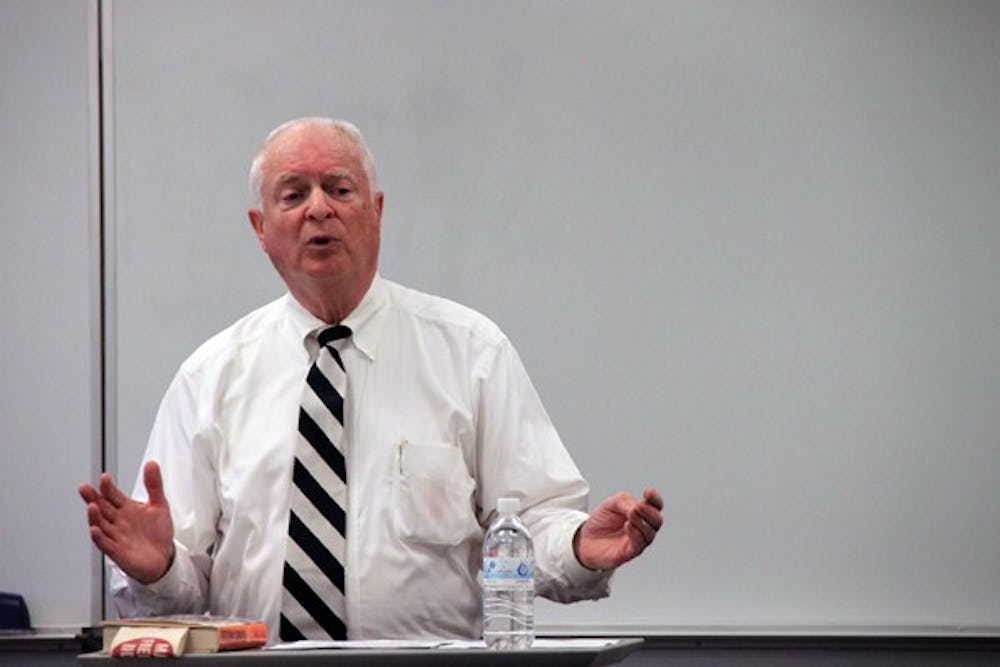A prominent Valley lawyer who participated in the Mississippi civil rights movement in the 1960s said his past experiences are similar to the current state of affairs in Arizona.
David Tierney, a former ASU law professor and a partner at a Scottsdale law firm, was the first speaker of this year’s Seeking Justice in Arizona lecture series at the School of Social Transformation.
“We are living through a slightly more genteel ethnic culture clash here than what happened in Mississippi 60 years ago,” Tierney said Thursday evening in the Farmer Education Building on the Tempe campus.
Tierney was the first speaker of this year’s fall lecture series, which has taken place for the last nine years.
Mary Romero, a professor at the School of Social Transformation, said she was in charge of finding local leaders who address issues of citizenship.
“We pick nationally interesting topics and find local people who can bring them to a local focus,” said Maureen Roen, the communications specialist at the School of Social Transformation.
Tierney addressed several topics, including the lessons he learned while in the Peace Corps in Venezuela, but he focused primarily on an analogy between the events he witnessed as a student civil rights activist and the current immigration debates in border states, particularly Arizona.
“It was a very provocative analogy,” said John Johnson, professor emeritus of justice and social inquiry.
Tierney said this analogy, like all, was not perfect and only worked up until a point.
He began his speech by addressing the near-constant media revival of 9/11 and said that people need to remember the ‘60s as well.
“The events of which I’m about to speak define what citizens should do when a civil rights crisis grips the state,” Tierney said.
He described influential people he met while traveling to Mississippi in his undergraduate summers, when he brought papers on how to pass literacy tests down to potential black Mississippi voters.
One of these was Jimmy Roberts, then-editor of the student newspaper at Ole Miss who later became Tierney’s peer at Harvard Law School. Roberts and his editorial staff came out against the riots that ensued when James Meredith became the first black student to attend Ole Miss.
“Emotions were at a fever pitch when I was there in 1962,” Tierney said.
Tierney said that events in Mississippi escalated over the next few years, until they reached a head in the summer of 1964, and it was not until then that he began to address Arizona.
“Why in the heck have I bored you for twenty minutes about Mississippi history?” Tierney asked. “We’re going to see something like that here in Arizona in the next year.”
Tierney said that in both the racial tension of ‘60s Mississippi and the immigration debates of contemporary Arizona, only courts can intervene and only lawyers can make a difference.
Still, he said, the people of Arizona needed to rise up and support the change when lawyers and the courts have initiated it.
“It’s from inside the border state that the solution to this immigration debate will come,” he said.
Reach the reporter at julia.shumway@asu.edu or follow @JMShumway on Twitter
Like The State Press on Facebook and follow @statepress on Twitter.




